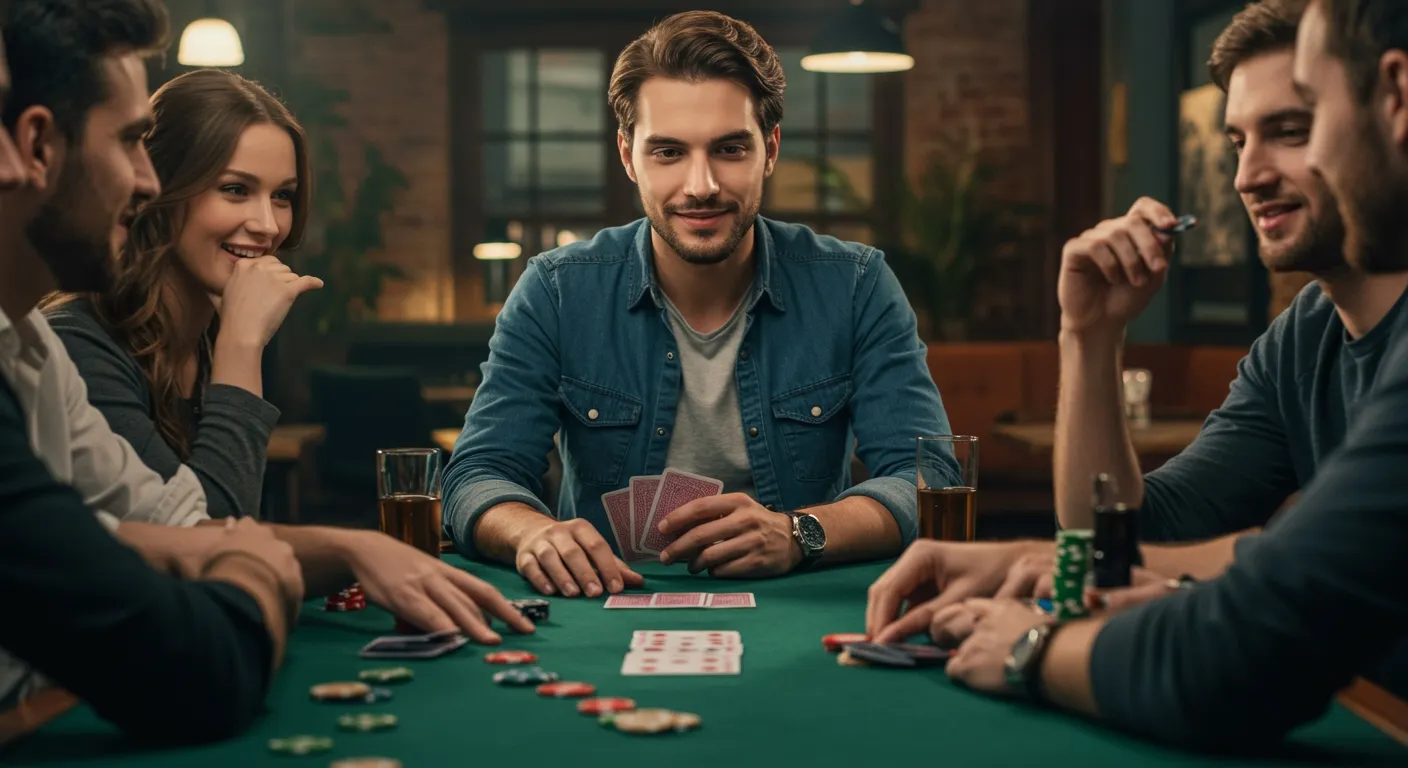Gambling has long been associated with excitement, strategy, and the dream of winning big. From the dazzling slot machines in casinos to the convenience of online platforms, it offers an instant rush of adrenaline that can be hard to resist. For most people, gambling remains a harmless pastime — a few bets here and there for entertainment. But for others, that same thrill can spiral into something much darker: addiction.
Understanding how gambling addiction starts isn’t just about identifying behavior patterns; it’s about seeing the subtle psychological and emotional triggers that push casual players toward dependency.
The Psychology Behind the First Bet
Every gambling journey starts the same way — curiosity. Maybe it’s a friend suggesting a poker night, a banner ad for a new casino promotion, or the appeal of easy entertainment after a long day. The first experience is usually harmless and even enjoyable. You place a small bet, win or lose, and move on.
However, what makes gambling unique is the emotional payoff tied to uncertainty. The brain releases dopamine — the same chemical responsible for pleasure and reward — not only when we win but also when we almost win. This powerful reinforcement loop teaches the mind to crave the “near-miss” just as much as victory itself.
That’s where the risk begins. The player starts associating gambling with excitement and relief from boredom or stress, rather than just as a fun pastime. And slowly, the line between entertainment and emotional dependence blurs.
The Role of Online Accessibility
The rise of digital platforms has changed everything. What used to require a trip to a physical casino can now be accessed in seconds from a smartphone. Online casinos and gambling sites uk have made it easier than ever to place a bet anytime, anywhere. While this convenience benefits responsible players, it can also become a trap for vulnerable ones.
Online gambling platforms often use sophisticated algorithms designed to maximize engagement. Personalized bonuses, near-instant withdrawals, and flashy designs all encourage players to stay longer. The constant accessibility means there’s no real “pause” between bets — no need to walk out of a casino or wait until the next day. That continuous availability can make it harder to stop, especially when the losses start piling up.
Moreover, digital transactions feel less “real” than physical money. Tapping a screen to deposit £50 doesn’t carry the same psychological weight as handing over cash, which makes it easy to underestimate how much you’re spending.
The First Signs of Dependence
Gambling addiction doesn’t happen overnight. It develops gradually through repeated exposure to risk and reward cycles. The first signs are often subtle and easy to dismiss:
You start gambling more frequently, maybe spending a bit more each time. You tell yourself it’s just a hobby, that you’ll quit when you want. But then you lose a big bet and chase it, convinced that a win is just around the corner. This “chasing losses” behavior is one of the earliest red flags — it signals that emotion has taken over logic.
Over time, you might start lying to loved ones about how much you’re spending, or find yourself thinking about gambling even when you’re not playing. The excitement that once felt positive now becomes anxiety and compulsion.
The addiction feeds itself through the “variable reward” mechanism — the same principle behind social media notifications and slot machines. You never know when the next win will come, so you keep playing, hoping for that one big payout to make everything worthwhile.
Emotional Triggers and Vulnerability
While anyone can develop a gambling problem, certain emotional and social factors make some people more vulnerable than others. For many, gambling starts as an escape from life’s pressures — financial struggles, loneliness, or stress at work. It becomes a coping mechanism that temporarily blocks out problems while providing a sense of control or excitement.
Ironically, this feeling of control is an illusion. Gambling outcomes are purely based on chance, yet the human brain tends to overestimate its ability to influence random events. This cognitive bias, known as the illusion of control, reinforces the addiction by making players believe their skill or strategy can change the outcome.
Depression, anxiety, and low self-esteem also play major roles. When someone’s mental health is already compromised, the dopamine rush from gambling can feel like a brief emotional rescue — but it only deepens the long-term problem.
How Modern Technology Fuels the Cycle
Technology has made gambling faster, more immersive, and more addictive. Mobile apps and live dealer platforms create a seamless experience that keeps users hooked. Push notifications, loyalty points, and “limited-time offers” use psychological tactics to keep players engaged.
The use of AI-driven personalization in gambling platforms means the system learns your habits and adapts offers accordingly. If you often play late at night, for instance, you might receive promotional bonuses around that time. It’s smart marketing — but also a subtle form of behavioral conditioning.
Virtual slot machines and online betting platforms mimic real-world casino environments so effectively that the distinction between fun and compulsion becomes blurred. The fast pace leaves no time for reflection — before you realize it, hours (and sometimes hundreds of pounds) have disappeared.
The Social and Financial Impact
One of the hardest truths about gambling addiction is that it rarely affects just the individual. Family members, friends, and even employers often bear the consequences. Financial instability is one of the earliest visible signs — unpaid bills, hidden debts, or maxed-out credit cards become common.
Beyond money, gambling addiction erodes trust and relationships. Partners may feel betrayed, parents may struggle to understand, and workplaces may see dips in performance or absenteeism. The emotional toll is immense, leading to shame, guilt, and in severe cases, depression or suicidal thoughts.
Addiction also thrives in secrecy. Many gamblers go years without seeking help, convinced they can manage it themselves. But without intervention, the pattern typically worsens.
Breaking the Cycle
Recovery starts with awareness. The moment someone recognizes that gambling is controlling them rather than the other way around, real change becomes possible. Self-exclusion tools, therapy, and support groups are essential resources. In the UK, organizations like GamCare and Gamblers Anonymous offer free and confidential help.
Technology, which once enabled the addiction, can also help combat it. Self-exclusion apps, deposit limits, and gambling-blocking software are available to restrict access to gaming platforms. These tools aren’t foolproof, but they provide much-needed structure for people trying to regain control.
Family support is equally important. Loved ones must approach the issue with empathy, not blame. Addiction is a psychological illness, not a moral failure. Encouraging open communication and seeking professional counseling can make a huge difference.
Why Awareness Matters Now More Than Ever
In a digital era where everything is gamified — from stock trading to social media — the risk of gambling addiction is higher than ever. The lines between entertainment and dependency have blurred, and that makes awareness crucial.
Online gambling platforms, especially in regions like the UK, are legally required to promote responsible gaming. But the responsibility also lies with players to understand the warning signs and take preventive steps before the behavior escalates.
By understanding how gambling addiction starts, we can recognize it sooner — in ourselves or in others — and take proactive steps toward healthier habits. It’s about balancing enjoyment with responsibility and acknowledging when the fun has gone too far.
Gambling can be thrilling, but it should never come at the cost of mental health or personal well-being. True entertainment is about control — knowing when to play and when to walk away.








